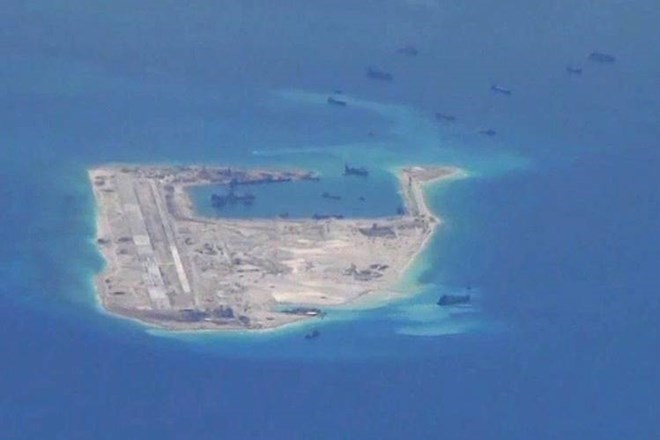Geneva workshop statement welcomes tribunal's East Sea ruling
A workshop on the East Sea issue held in Geneva, Switzerland on December 6 issued a statement welcoming the ruling of the Permanent Court of Arbitration (PCA) in the Hague on the Philippines’s lawsuit against China’s claims in the waters.
 |
| A photo taken by the US spy planes in the East Sea (Source: WSJ) |
The statement said the final and binding ruling of the PCA in July this year in accordance with Appendix VII of the 1982 United Nations Convention on the Law of the Sea (UNCLOS) opened up a chance to solve relevant disputes and boost cooperation conducive to environmental protection and sustainable development in the waters.
It also highlighted the importance of ensuring the freedom of navigation and aviation in line with international law in the East Sea for not only regional countries but also the international community as a whole.
The statement urged the acceleration of diplomatic and legal processes to address sovereignty disputes in the East Sea, while emphasising the role of the Declaration on the Conduct of Parties in the East Sea (DOC) and the formation of a Code of Conduct in the East Sea (COC) between China and ASEAN in maintaining peace and stability in the East Sea.
Many participants, who are leading jurists and experts from the US, the UK, Belgium, Switzerland, Italy and Australia, affirmed China’s sovereignty claims in the sea are completely groundless, stressing that it is necessary to maintain peace and stability in the East Sea.
They also reaffirmed the principle of solving international disputes by peaceful measures on the basis of international law, including the 1982 UNCLOS and the application of the convention to addressing East Sea-related disputes.
They hoped more international workshops and forums on the East Sea will be organised to expand study and links among institutes and scholars, towards building common awareness and giving policy recommendations on the issue to governments and international organisations.
(Source: VNA)